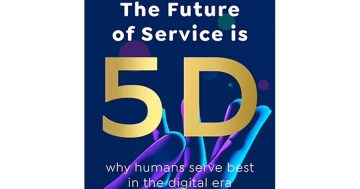Heidi Zak* suggests managers make a deeper investment in their teams.
 When companies want to give back to their employees, leaders often think of things like free lunches and happy hours.
When companies want to give back to their employees, leaders often think of things like free lunches and happy hours.
While nobody’s going to turn down free food, my company’s internal employee engagement survey showed us that employees’ desires run deeper.
When asked about the one specific thing our people team could help with right now, an overwhelming number of our teammates mentioned the same thing: career-development opportunities.
All partnerships–especially employee-employer ones–benefit from asking what the other person wants and needs.
When they tell you, listen to what they say, and take meaningful action.
This year, my company is investing primarily in training and development for our entire leadership team and all of our people managers.
I believe it’s a more targeted, informed use of our budget.
Here’s what my company and I expect to gain from our investment–and why all leaders should consider revamping the value proposition they offer employees.
It informs and aligns people with varied backgrounds
You want to be sure that your people understand the company’s common objective and that they’re equipped to tackle the challenges along the way.
Those are very basic elements of company success.
Because they’re so basic, it’s easy to take them for granted and forget to actively invest in them.
In our case, managers have different levels of experience, come from different companies, and have different trainings under their belt.
First-time managers benefit from a management how-to.
Long-time managers benefit from learning the standards and practices that today’s employees expect.
All people benefit from alignment.
Diversity of perspectives is essential; so is unity of purpose.
It facilitates personal and professional growth
Because career development has both intrinsic and extrinsic rewards, personal growth is an incredibly powerful value-add.
Leadership trainings offer a common curriculum.
They focus on four main skill areas: the ability to be a coach, giving and getting feedback, productivity and prioritization, and holding effective one-on-ones.
It’s a mixture of hard and soft skills that will benefit leaders while they’re with us, and wherever else their careers take them.
As leaders, we’re funding their own personal growth journeys, not just telling them how we think they should improve.
It improves engagement and retention
In a competitive hiring market, employees need more reasons than ever to stick with their company.
That goes beyond market salaries and includes things like emotional intelligence in their leaders, a positive employee experience, and an inspiring purpose.
Overall, it means seeing their job as more than a job.
Today’s employees rightly view their professional function as an extension of their personal goals.
The more we can make working at our company transcend the proverbial office walls, the more reliably we’ll hang onto those people who make us who we are.
At the end of the day, people make companies successful.
To be successful, people need the resources to work on the right things at the right time, and to be in an environment where they know they’re heard, understood, and valued.
Everyone wants to learn, to improve, to grow.
In fact, research suggests that material rewards correlate less with long-term happiness than learning.
The surest way to make people happy is to exceed their expectations.
For today’s employers, this means investing in your people in ways that transcend traditional salary and benefits.
*Heidi Zak is the Co-Founder and CEO of ThirdLove, a multi-generational women’s lifestyle brand.
This article first appeared at inc.com.











